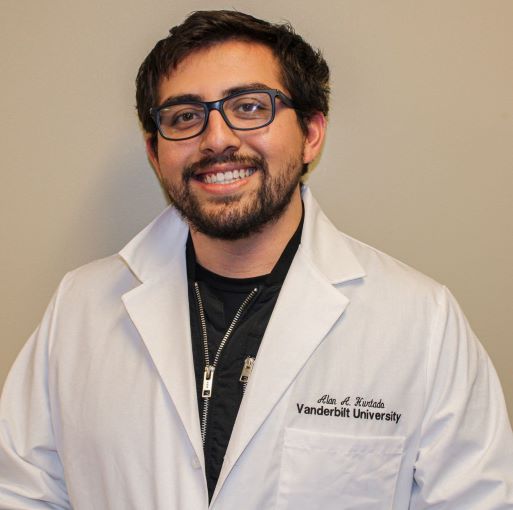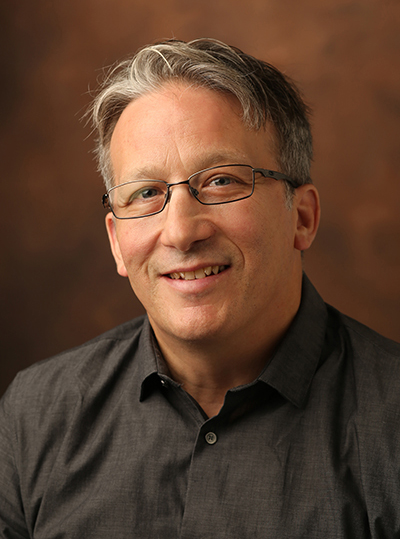Alan Hurtado, a Chemical and Physical Biology Ph.D. candidate in the lab of Edward Levine, has been awarded the first Linda Sealy Emerging Scholar Travel Award.

Hurtado and Levine will receive $4,000 to attend a national conference in Hurtado’s research field. The award was named for Linda Sealy, associate professor emerita of molecular physiology and biophysics.
Hurtado’s graduate research seeks to uncover the transcriptional and epigenetic mechanisms that maintain retinal progenitor cell lineage during development. His main goal is to identify the interconnectedness of activating and repressing eye lineage pathways that regulate retina and retina pigment epithelium differentiation. Hurtado is specifically interested in understanding how these mechanisms prevent retinal progenitor cells from changing tissue lineages during development. Hurtado and Levine, who is the William A. Black Professor of Ophthalmology and a professor of cell and developmental biology, will use the award to attend the Association for Research in Vision and Ophthalmology annual meeting, the leading conference in their field of work, in 2025.
“I am honored to have been selected as a recipient for the Linda Sealy Emerging Scholar Travel Award,” Hurtado said. “Networking is an indispensable aspect of research, and it is crucial for finding collaborators and job opportunities. My career goal is to get a tenure-track faculty position at an R1 institution, so being connected with experts and being familiar with the research that is being conducted is imperative for further developing my career options.” While at the conference, Hurtado plans to share his work with researchers and professionals with different areas of expertise to help him continue building his graduate project. He added, “Knowing that my mentor will play a proactive role in my interactions during the meeting gives me the confidence that I will maximize my time at the conference.”

Hurtado joined Vanderbilt in 2021 and received an Institutional Training Grant from the National Institutes of Health and a Provost’s Graduate Fellowship from Vanderbilt University the same year. The following year, he received a National Science Foundation Graduate Research Fellowship.
On campus, Hurtado leads the Vanderbilt chapter of the Society for the Advancement of Chicanos/Hispanics and Native Americans in Science and is the vice-president of student support for the Chemical and Physical Biology Graduate Student Association. Hurtado has also served as a peer mentor for multiple first-year students from the Initiative for Maximizing Student Development and Quantitative and Chemical Biology programs.
Hurtado was selected by a committee chaired by Vivian Gama, associate dean for mentoring and associate professor of cell and developmental biology, Felysha Jenkins, assistant dean of professional development and community engagement, and Ken Lau, professor of cell and developmental biology and associate professor of surgery. The award was established with funds provided by the Howard Hughes Medical Institute Gilliam Fellows Program, the School of Medicine Basic Sciences, and the Department of Cell and Developmental Biology.
“I am so proud that we were able to recruit Alan to Vanderbilt in the spring of 2021 right before I retired, as he is clearly an amazing scholar and richly deserving of this award,” Sealy said. “It’s wonderful to know that the Basic Sciences, through the efforts of Vivian, Ken, and Felysha, are providing this travel opportunity for Alan and his mentor, Ed Levine, which will no doubt advance Alan’s career.” Sealy extended the congratulations to Levine and added that, “by making the mentor’s engagement part of the selection criteria, this award importantly conveys to the entire biomedical research community that quality mentorship is valued at Vanderbilt.”